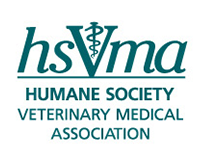| Advocacy |
Massachusetts Vets: Ban Pig and Calf Confinement CagesJuly 5, 2013 More than 175 Massachusetts veterinarians have joined with the Humane Society Veterinary Medical Association in calling for a prohibition on the extreme confinement of pigs in gestation crates and calves in veal crates. In advance of the Massachusetts Legislature's public hearing on July 9, veterinarians signed onto the HSVMA's letter expressing support for An Act to Prevent Farm Animal Cruelty (S. 741), which would require that pigs and calves have enough space to turn around freely, lie down, stand up and fully extend their limbs. "As deeply concerned advocates for animal health and welfare, we strongly agree with the premise of this bill, that locking pigs and calves in cages so small they can't even turn around is inhumane and ought to be banned," said HSVMA Senior Veterinary Advisor Dr. Barry Kellogg of Pittsfield, Mass. "These social, intelligent animals suffer severe physical problems as well as psychological anguish from being isolated and prevented from engaging in important natural behaviors." In the pork industry, the vast majority of breeding pigs are confined day and night during their fourth-month pregnancy in gestation crates -- cages roughly the same size as the animals' bodies. The animals are then placed in another crate to give birth, are re-impregnated, and put back into gestation crates. This happens pregnancy after pregnancy for their entire adult lives, adding up to years of virtual immobilization. The vast majority of pork coming into the Commonwealth comes from animals who were confined in this inhumane manner. Calves raised for veal are also intensively confined in individual crates too narrow for them even to turn around. Often tethered by their necks to further restrict movement, they're virtually immobilized for their entire 16-week long lives. Those who have signed the An Act to Prevent Farm Animal Cruelty support letter include veterinarians who work in animal shelters and private practices and those from rural and urban communities throughout the state. View the HSVMA support letter with veterinary signatures» Facts:
Media Contact: Niki Ianni, 301-548-7793, [email protected] |
